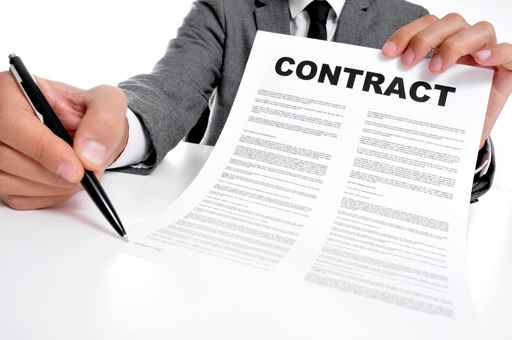 1. Indemnification – Yes, it sounds like a disease and it can often destroy your contractual rights if you are on the wrong side of one of these provisions. These provisions are commonly found in Commercial Leases and Construction Contracts, but are being utilized more and more in other business transactions. By signing these agreements, you are agreeing to pay regardless of fault. If you see this provision, it is vital that you have an attorney review it before signing . . .
1. Indemnification – Yes, it sounds like a disease and it can often destroy your contractual rights if you are on the wrong side of one of these provisions. These provisions are commonly found in Commercial Leases and Construction Contracts, but are being utilized more and more in other business transactions. By signing these agreements, you are agreeing to pay regardless of fault. If you see this provision, it is vital that you have an attorney review it before signing . . .
2. Who are the Parties? Often times, I meet with business owners and operators who have entered into agreements or attempted to put together a letter of intent, etc. Many times, the wrong party signs the agreement. Review the corporate documents to ensure that you have the proper legal name of the party drafted into the agreement.
3. What does each Party have to do under the agreement? It doesn’t have to be complex or written in legalees … but the contract must clearly state what each party is required to do. For example, in a service contract, one party is required to pay a fee and the other party is required to perform services in exchange for that fee. The payment terms must be specific as to how much to pay, when to pay, and where to remit payment. Now, service providers are notorious for inserting vague language into their agreements. It is easier to establish performance if you didn’t actually agree to do anything in the first place.
4. What happens if someone breaches the contract? Do you go to court? Where? Who pays? Who pays for attorneys fees? How will you calculate damages? These questions must be answered prior to signing. If the damages are too difficult to calculate, consider a liquidated damages provision. Also, talk to your lawyer about limiting your exposure. How much risk do you want to take? How much profit are you projecting to make on this transaction? Once you’ve answered these questions, you may want to consider inserting a provision into your agreement that limits your liability and removes any lost profits or other consequential damages from the overall exposure.
5. How do I want to resolve a contract dispute? I recommend that you revisit your Dispute Resolution provisions in each of your company agreements. Mediation and Arbitration are being utilized to resolved disputes more than ever. Ask your attorney to review your options and select a customized dispute resolution plan for your business. NOTE: be careful of AAA Mediation and Arbitrations … the AAA can be very expensive. Also note: Attorneys Fees are often the single largest factor determining whether or not a particular case is going to settle. If your contract provides for a legitimate recovery of attorneys fees, you may have increased leverage in the litigation process. Revisit prevailing party attorney’s fee provisions. What constitutes prevailing … Be specific?
Bonus Practical Tip: Who controls the money? Often times, parties are required to put money down, pay in advance, or put down a deposit to ensure prompt payment. If you do not control the money, then you must make sure that the contractual language provides for a practical way to retrieve or otherwise protect these monies in the event of a breach or termination of the contract. If the language is not drafted properly, the party that controls the money will maintain control over that money until the lawsuit or arbitration is finally resolved.
